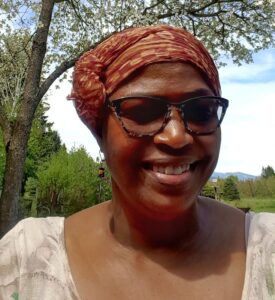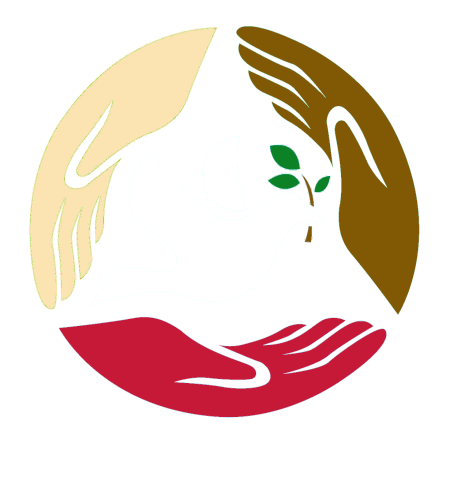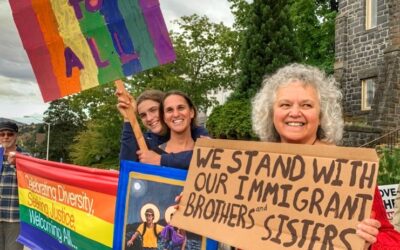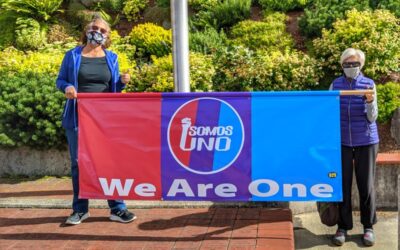Evelyn Charity –
 My name is Evelyn Charity and I am one of five daughters whose mother was born to sharecropper parents in Arkansas in 1918. She and her nine siblings had to pick cotton before walking 4 miles to the segregated and under-serviced school of all Black students. Escaping the fear for their lives during the Jim Crow south, they all fled north during the Great Migration.
My name is Evelyn Charity and I am one of five daughters whose mother was born to sharecropper parents in Arkansas in 1918. She and her nine siblings had to pick cotton before walking 4 miles to the segregated and under-serviced school of all Black students. Escaping the fear for their lives during the Jim Crow south, they all fled north during the Great Migration.
My mother landed in Chicago, where poverty and segregation was still a part of her life and then became our lives. We lived in segregated, poverty-stricken neighborhoods where racism was covert. All of my elementary school teachers were Black, but the principal was White. Although we could sit anywhere on the public transportation bus and in the movie theaters, sadly, the only White people we came in contact with were salespeople and the families that my mother worked for cleaning their homes and caring for their children. We grew up seeing White people in power, in the media, on television, and on the big screen.
I was fortunate enough that my 8th grade teacher had me to apply and test to attend a high school out of my neighborhood to better my education. It turned out to be a predominately White school and I felt frightened, afraid and insecure because of my inferior education. I didn’t feel as smart as my peers. As time passed, I formed relationships with these students who were mostly Jewish and our friendships remained.
In college, I attended an HBCU (Historic Black College and University )which is where I learned Black History and all the things that I should have been learning in my White high school. I knew then that I wanted to become a history teacher!
My life took me full circle when after being one of two Black women who worked at our company in Westport, CT, to moving to Aspen, Colorado where I was the only Black employee at the Aspen Institute, then the only Black ski instructor on all three mountains. Our youngest son was the only Black student from preschool through 2nd grade. Our middle son was one of two Black students from middle school through high school. Wherever we followed him in sports, we were the only Black people there. We moved to Hood River in 1990. We empowered our sons with pride in their heritage and culture and to hold their heads up high in the face of adversity.
I became a social studies teacher, at Hood River Valley High School, teaching U.S. History from a social justice perspective. Most of my students had never met a Black person. The Latin x population, when I started, was just 10%. Emmett Till was mentioned in our textbook during the 90’s but as the years went on, he was written out, so I had to teach them the untold story of the sacrifice of his life as a catalyst for change. US History and Oregon history are not pretty, but I felt it was my duty to teach my students the truth. The first day of the class, they learned that everything in our history is based on money and power. Those who do not have them are doomed to remain on the lower rungs of society and victims of oppression. They are poor people who are mostly Black, brown and Indigenous people who desperately need our help!
If we do not stand up against hatred, violence, and oppression TODAY, using our voices, our knowledge and our economic power, there will be no hope for change and the issues of systemic racism that has plagued our country will continue and young men and women will continue to lose their lives.
STAND UP, SPEAK OUT!
Justice Resources
Books, Articles, Documentaries, Movies, TV Shows
Check out our recommended racial and social justice resources
More From the Justice Blog
The Importance of Learning, with Ann Harris
Ann Harris - Since 2016, something has really changed for me in the way that I feel when I am out in public spaces or traveling around the state or...
Racial Injustice from Hiroshima and Nagasaki to Today
Tina Castañares - My name is Tina Castañares. I live in the Odell area and have lived and worked in the Mid-Columbia for 36 years. I believe in...
My Journey Toward Anti-Racism
For many years, I have resisted uncomfortable conversations about race and white privilege. My sister has for many years challenged our family to engage in discussions about race and I have resisted, asking her explicitly to stop bringing those topics to the dinner table. I did not want to engage in dialogues about racism because I felt that I did not know enough and if I said something it would show my ignorance. I often felt if I did not say anything offensive or negative to someone of color, then no one could prove I was racist.
It Matters
“Be twice as good”
I never heard these words
It was enough to try my best
And when I didn’t
When I lived into
My adolescent boyhood
I
Never
Feared
For my life




